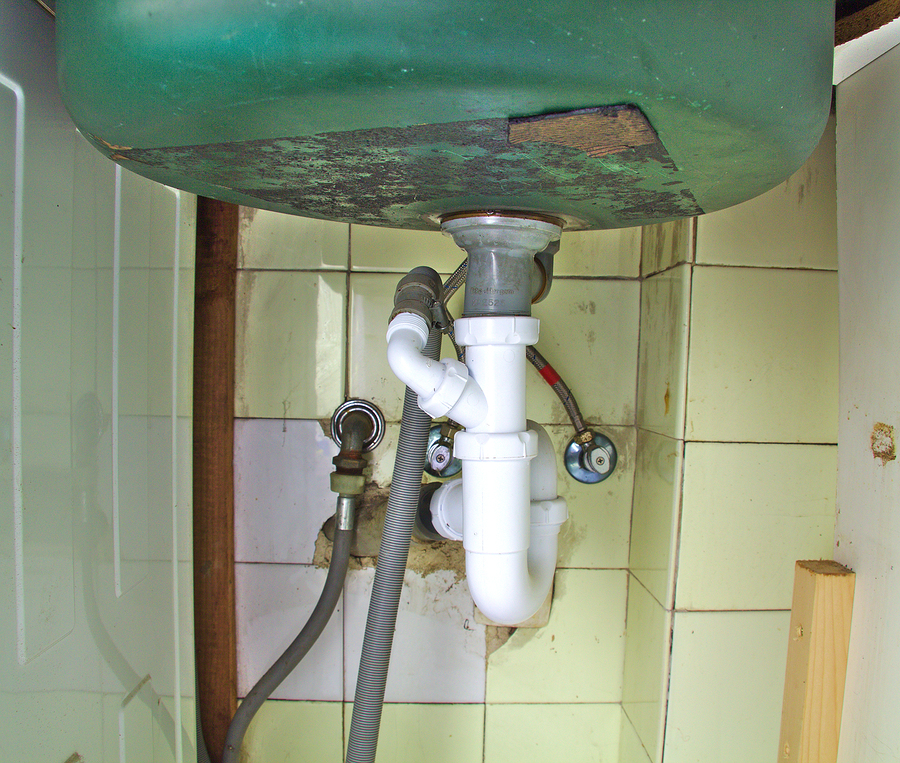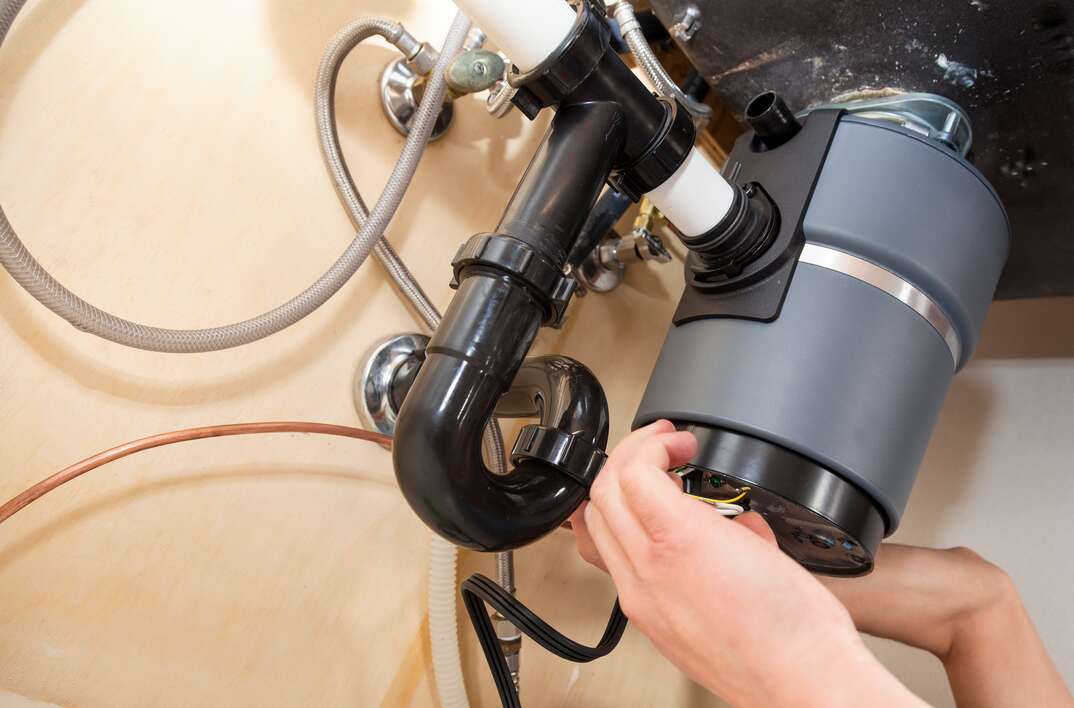The Guide to Resolving a Leak in Your Garbage Disposal
The Guide to Resolving a Leak in Your Garbage Disposal
Blog Article
We have uncovered the article about How to fix a pretty consistent leak from my garbage disposal listed below on the web and thought it made good sense to write about it with you over here.

Garbage disposals are important cooking area home appliances that help in disposing of food waste efficiently. Nonetheless, a leaking waste disposal unit can be a frustrating and untidy issue to deal with. Fortunately, many leaks can be repaired conveniently with a few basic actions. In this post, we will certainly go over just how to take care of a leaking waste disposal unit effectively.
Introduction
Waste disposal unit are set up under kitchen sinks and are designed to shred food waste right into smaller sized items, enabling it to go through the plumbing system quickly. While these tools are typically reputable, leaks can take place with time due to damage, loosened connections, or damage to the device.
Typical Sources Of Leakages in Rubbish Disposals
Worn Seals and Gaskets
Seals and gaskets play an essential role in preventing water from dripping out of the garbage disposal. In time, these components can degrade, resulting in leaks around the disposal device.
Loose Connections
The links between the waste disposal unit and the plumbing system can end up being loose gradually, triggering water to leak out during procedure.
Cracks or Openings in the Disposal Unit
Physical damages to the garbage disposal, such as splits or holes in the real estate, can also cause leaks.
Determining the Resource of the Leak
Prior to attempting to fix a leaking waste disposal unit, it is necessary to recognize the source of the leak. This can commonly be done through aesthetic evaluation or by carrying out straightforward examinations.
Visual Inspection
Examine the garbage disposal system meticulously for any kind of indications of water leakage. Pay very close attention to areas around seals, gaskets, and connection points.
Testing for Leaks
One means to test for leakages is by running water with the disposal system and checking for any type of visible signs of leakage.
Devices and Materials Needed for Dealing With a Leaking Garbage Disposal
Before starting the repair process, gather the needed tools and materials, including a screwdriver, adjustable wrench, plumbing professional's putty, replacement seals or gaskets, and epoxy or patching material for fixing splits or holes.
Step-by-Step Overview to Repairing a Dripping Garbage Disposal
Shut off the Power
Prior to trying any type of repair services, make sure that the power to the garbage disposal device is shut off to avoid the risk of electrical shock.
Situate the Leakage
Identify the exact location of the leak and identify the cause.
Tighten Connections
Utilize a wrench to tighten up any loosened connections in between the disposal device and the plumbing system.
Replace Seals or Gaskets
If the leak is due to worn seals or gaskets, remove the old components and replace them with brand-new ones.
Patching Cracks or Holes
For splits or holes in the disposal unit, use epoxy or an ideal patching product to seal the damaged location.
Examining the Waste Disposal Unit After Repair Service
As soon as the repair work is full, examine the waste disposal unit by running water via it to make sure that the leak has been dealt with.
Preventive Maintenance Tips to Prevent Future Leakages
To stop future leakages, it is important to perform routine maintenance on your waste disposal unit. This consists of keeping it clean, preventing placing non-food items or hard objects down the disposal, and periodically looking for leakages or other problems.
Final thought
Finally, repairing a dripping waste disposal unit is a reasonably simple process that can be finished with standard tools and products. By complying with the steps outlined in this article and exercising preventative upkeep, you can keep your garbage disposal in good working condition and avoid pricey repairs in the future.
HERE’S HOW TO FIX YOUR GARBAGE DISPOSAL
WHAT TO DO IF SOMETHING IS STUCK IN YOUR GARBAGE DISPOSAL
If the impeller won’t turn, there’s probably something stuck in the disposal. It could be a steak bone or peach pit, although plumbers report pulling all sorts of inappropriate objects out of disposals, such as bottle caps or aluminum foil. Make sure power to the disposal is off, and look inside to see if you can see the source of the jam.
Never stick your fingers in a disposal. Pull out anything you see with tongs or pliers.
If the disposal still won’t work, it may be time to call a plumber or consider buying a new disposal. GEM Plumbing & Heating is here for all of your garbage disposal needs.
WHAT TO DO IF YOUR GARBAGE DISPOSAL DRAIN IS CLOGGED
Take everything out from underneath your sink and put a bucket or other container under your disposal to catch any water that drains out. Disconnect your disposal from the power supply. If it’s plugged into a wall outlet, unplug it. If it’s hardwired into an electrical box, go to the electrical panel and turn off the breaker for the disposal. Pour ¼ cup of baking soda into the drain, followed by ½ cup of white vinegar. Give the solution a few minutes to fizz and do its work. Look into the disposal with a flashlight to see if you can see an object that might be causing the clog. If you see it, remove it using tongs or pliers. MORE TIPS ON DEALING WITH A CLOGGED GARBAGE DISPOSAL
Never use drain cleaner in a garbage disposal. It can damage the plastic parts inside the disposal. You can also be splashed with the caustic liquid while working to clear the clog. Beware! Never stick your fingers into a garbage disposal. Trust us — not a good idea. In many instances, your dishwasher drains through your garbage disposal. This allows the disposal to grind any large food particles that may be drained out of your dishwasher. There are some jurisdictions, however, where the plumbing code prohibits such a connection. WHAT TO DO WHEN YOUR DISHWASHER DRAINS THROUGH THE DISPOSAL
Run some water in the sink so your plunger has at least a ½-inch of water to create a seal and plunge vigorously up and down several times. You may need to repeat this several times. Run hot water down the drain to clear any residue that remains.

I'm very serious about Tips on Fixing a Leaking Garbage Disposal and I am assuming you enjoyed reading our post. So long as you liked our page kindly make sure you remember to pass it around. Many thanks for your time. Kindly come by our site back soon.
Check Us Out Report this page